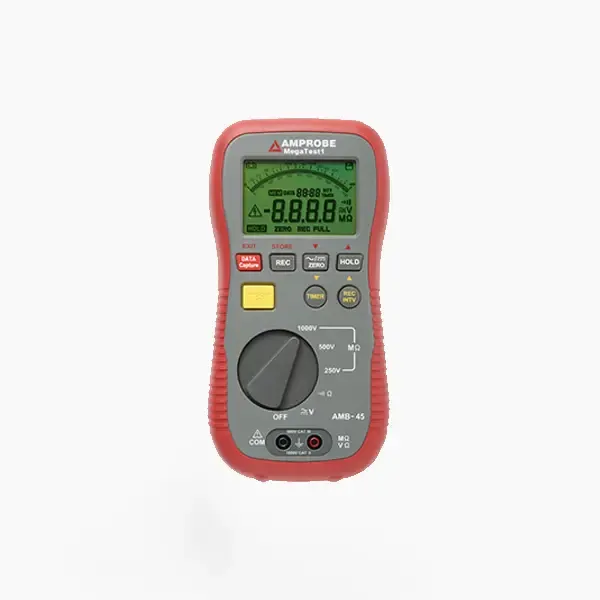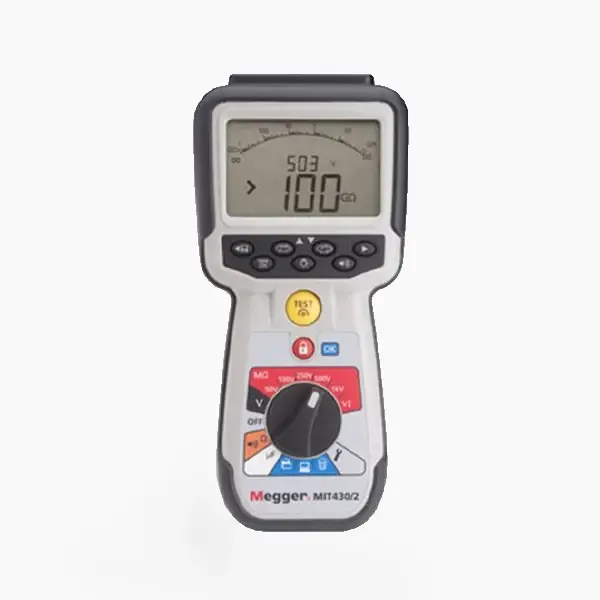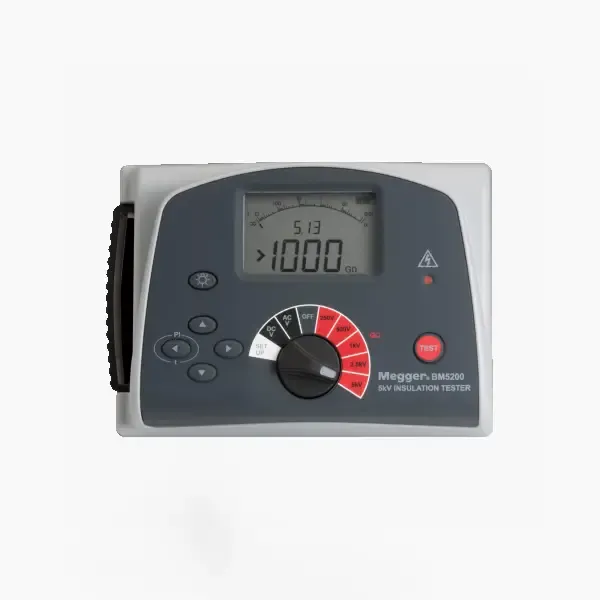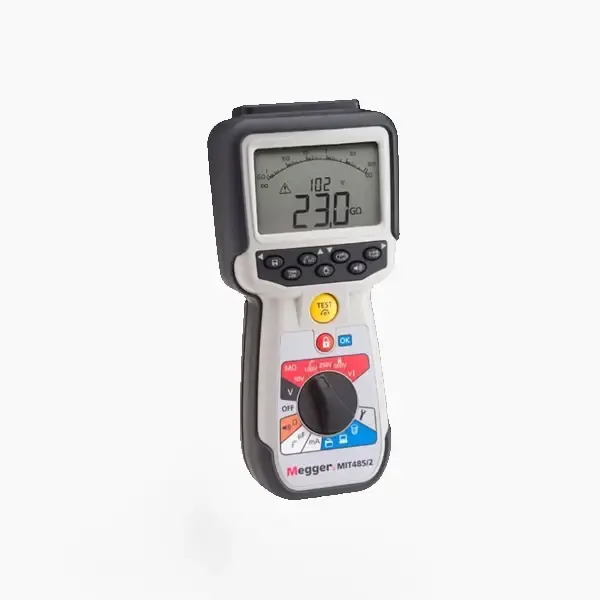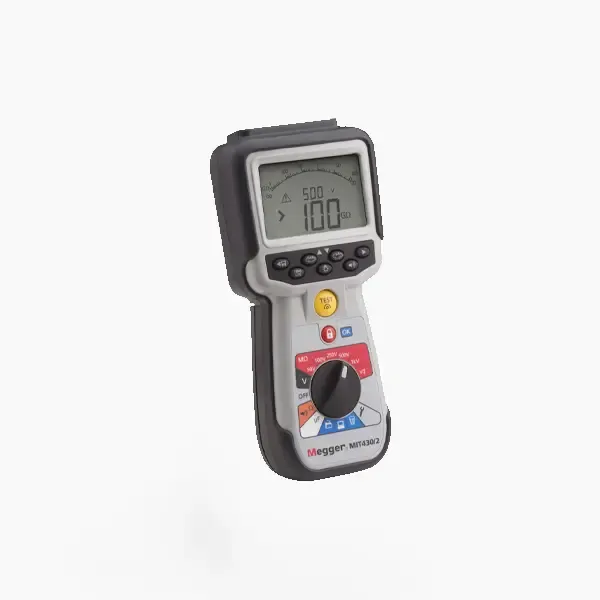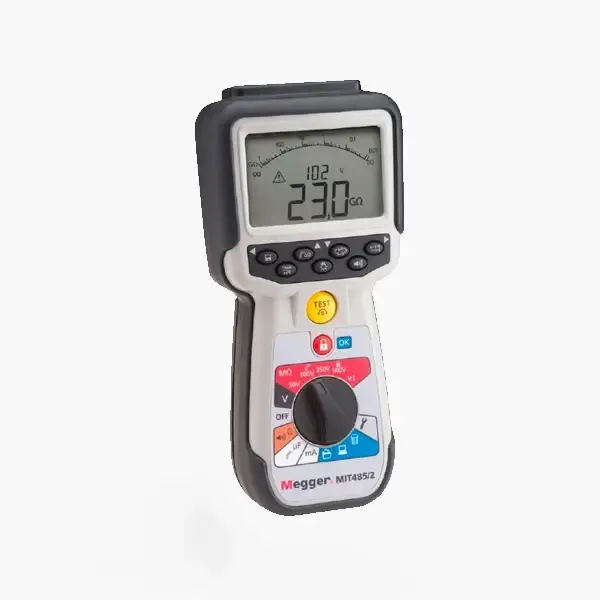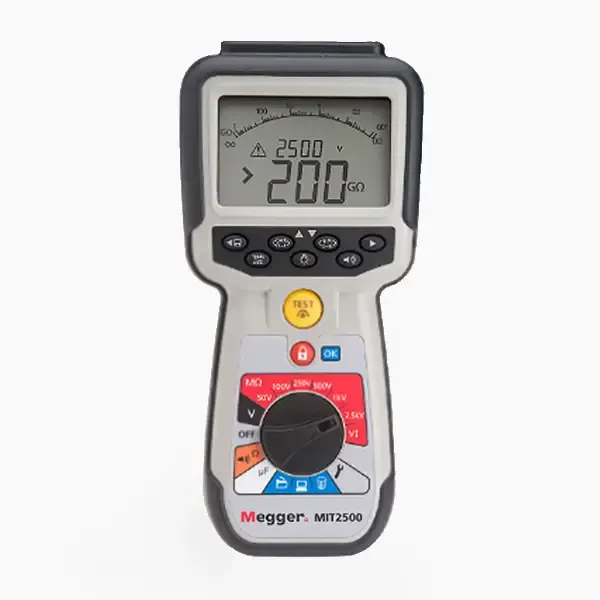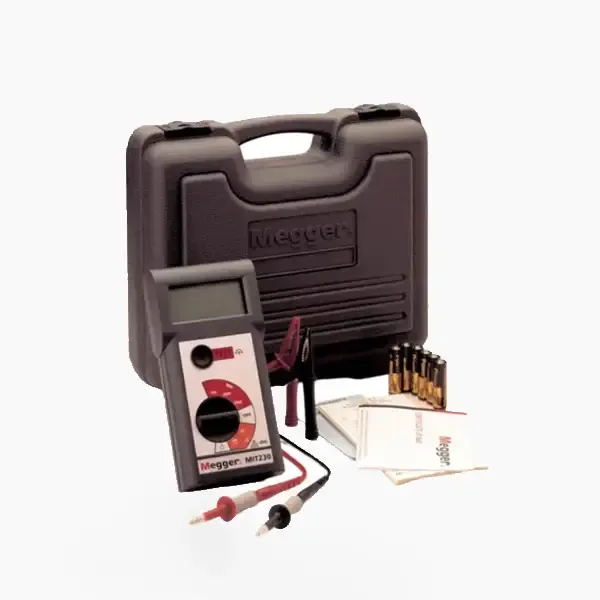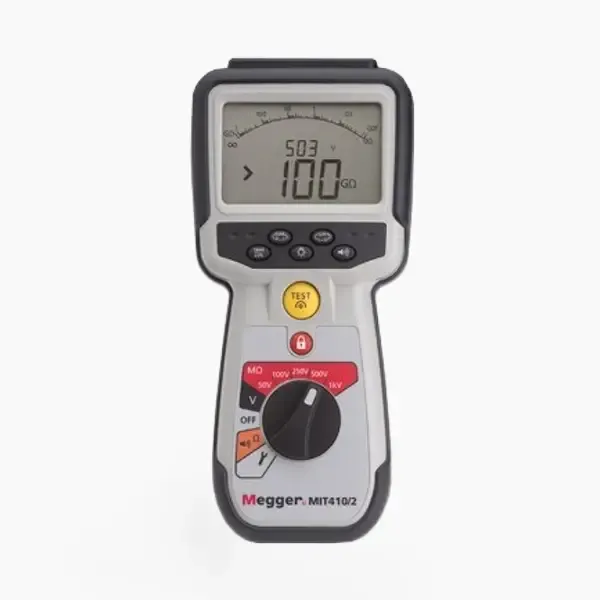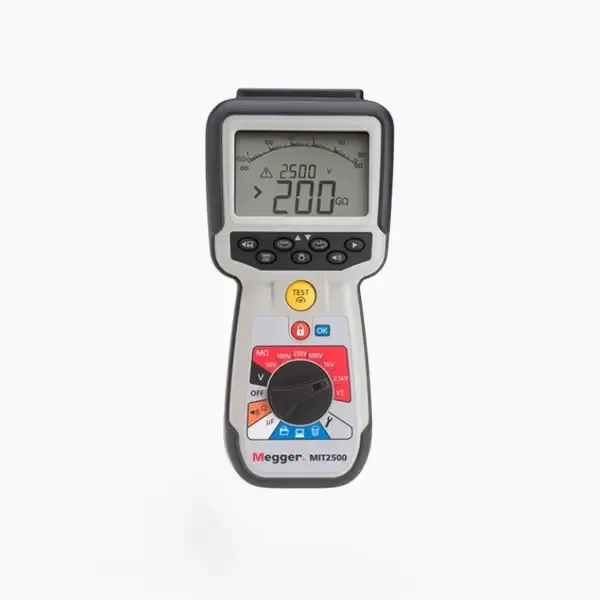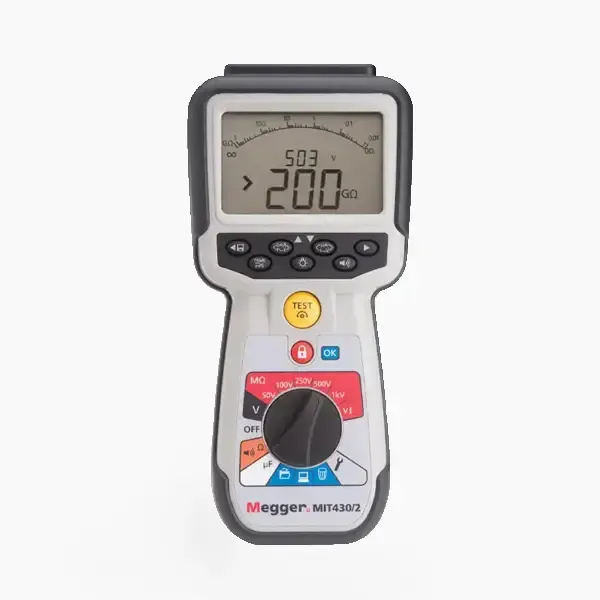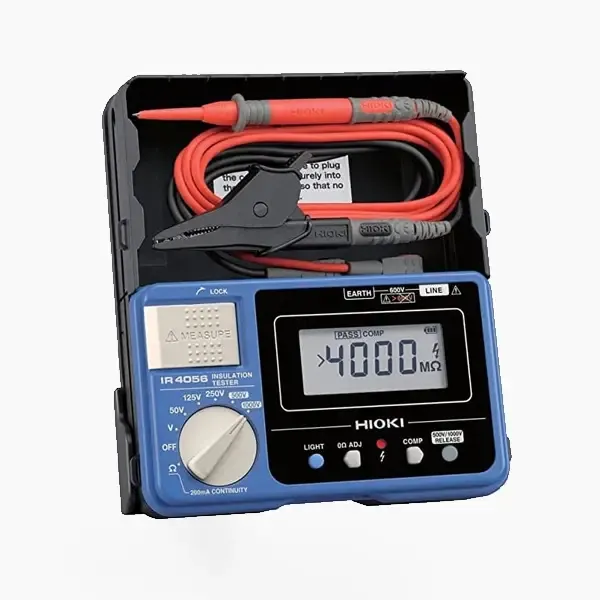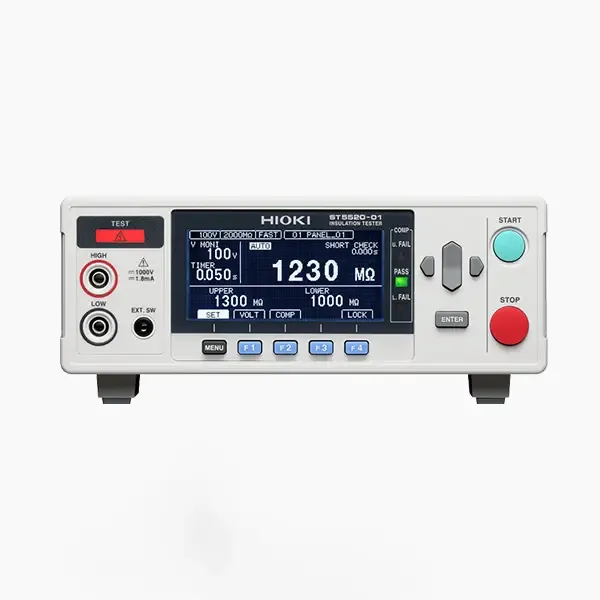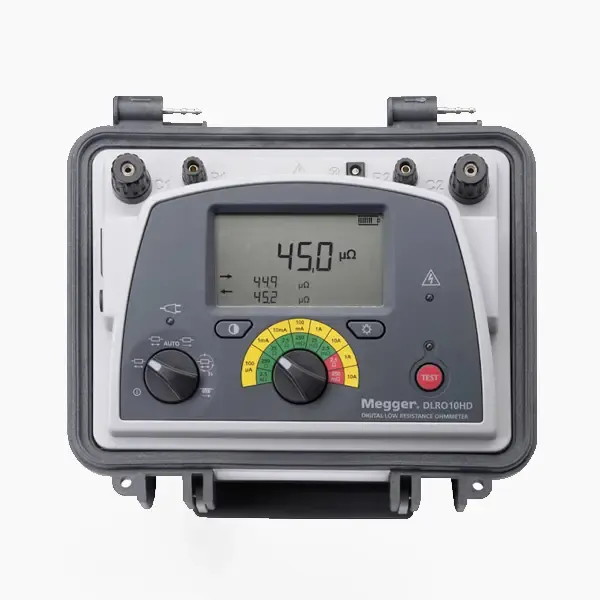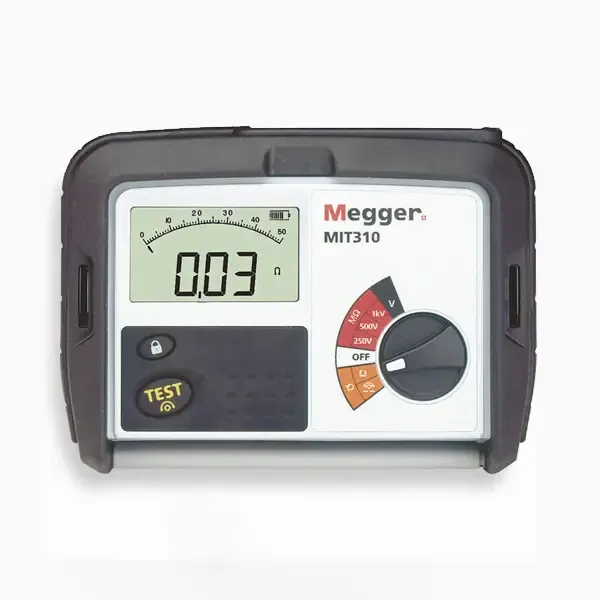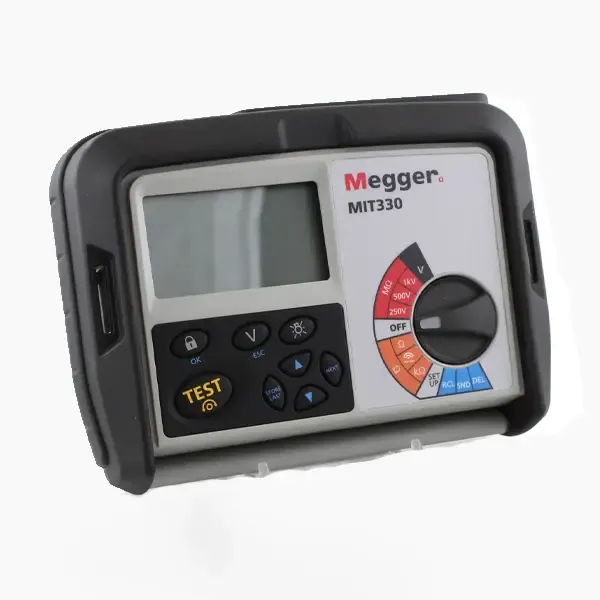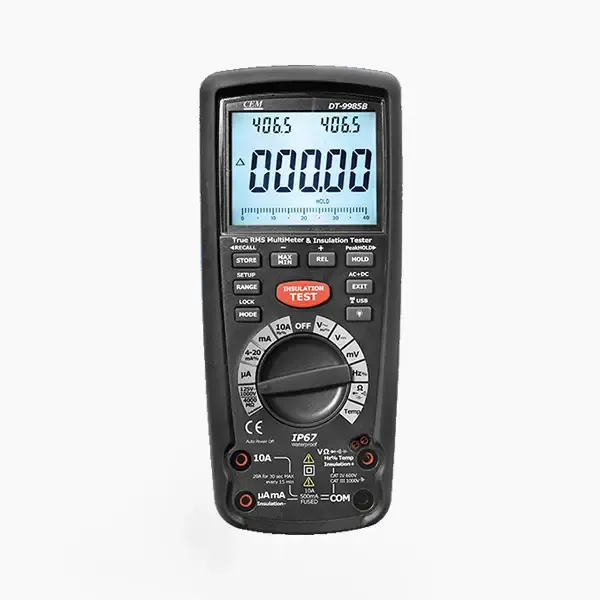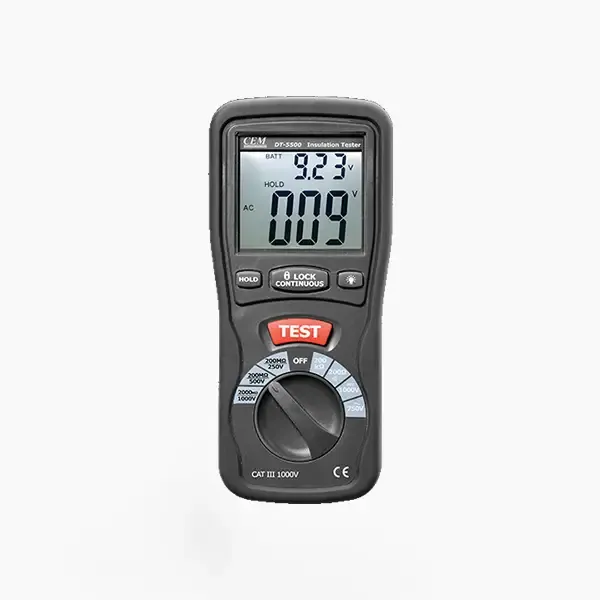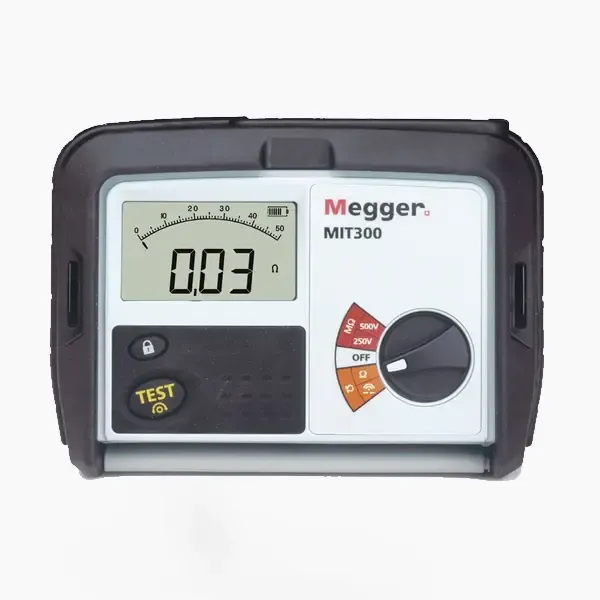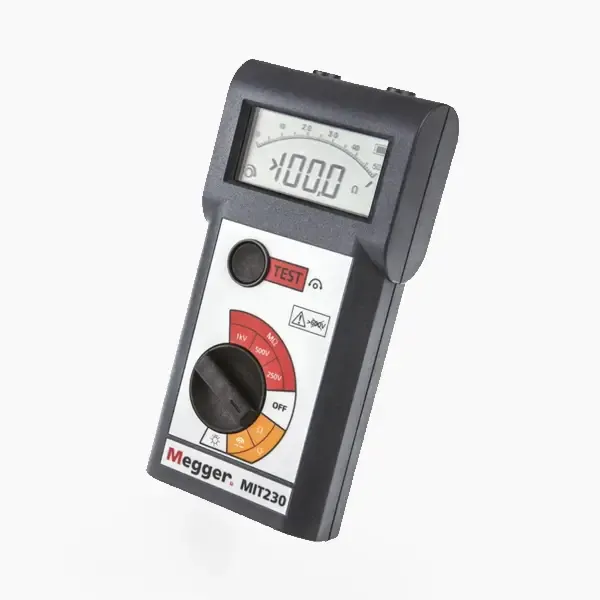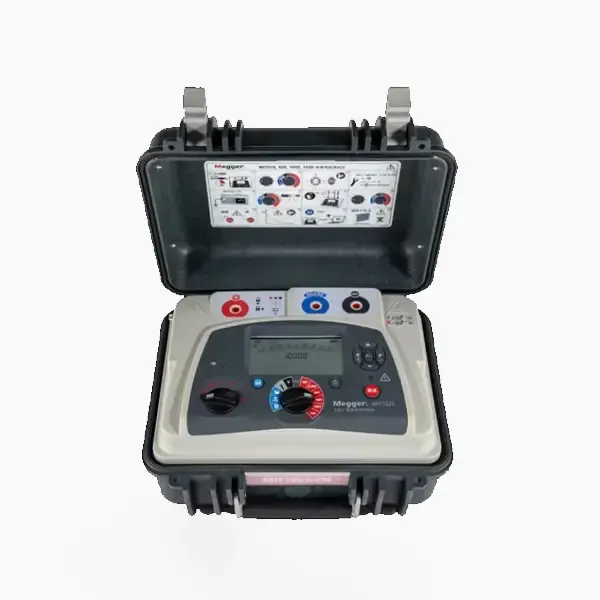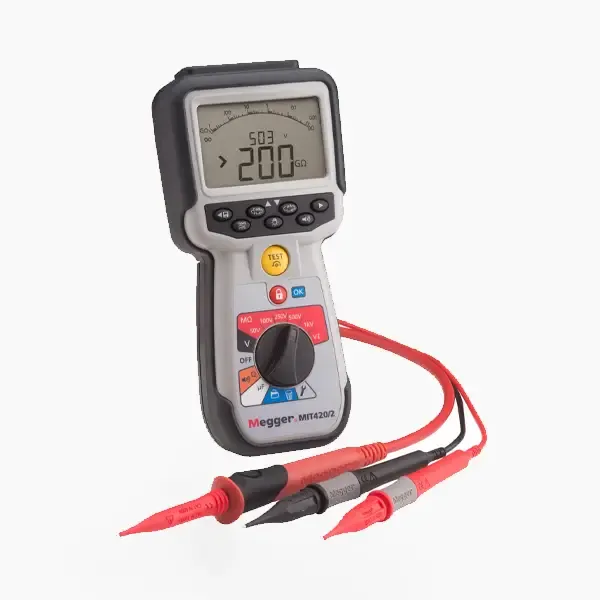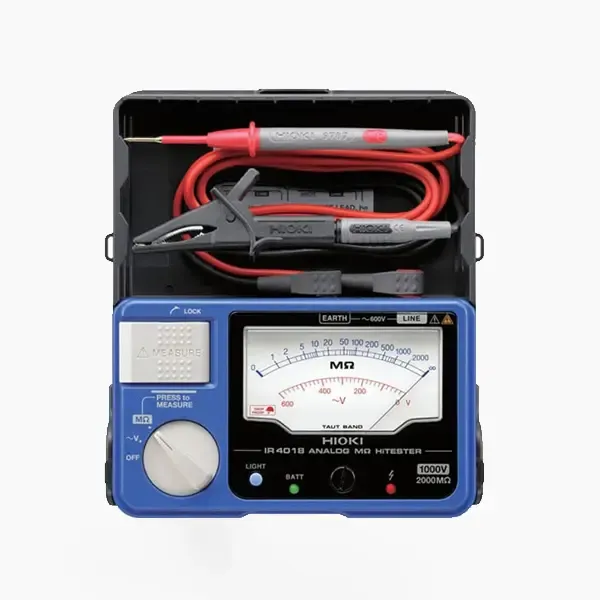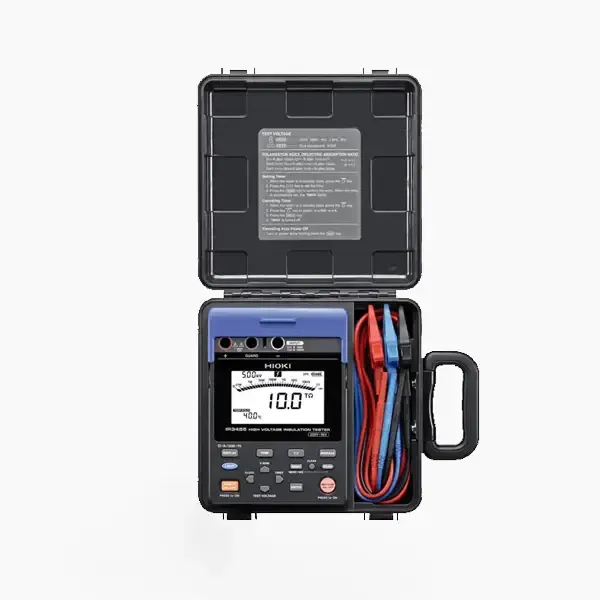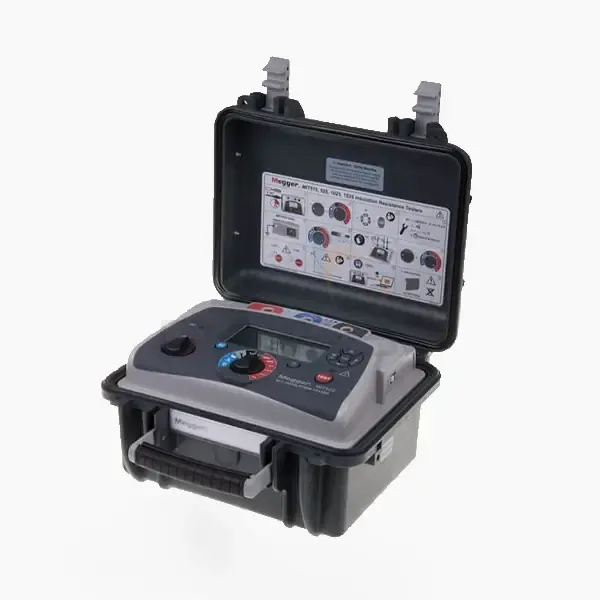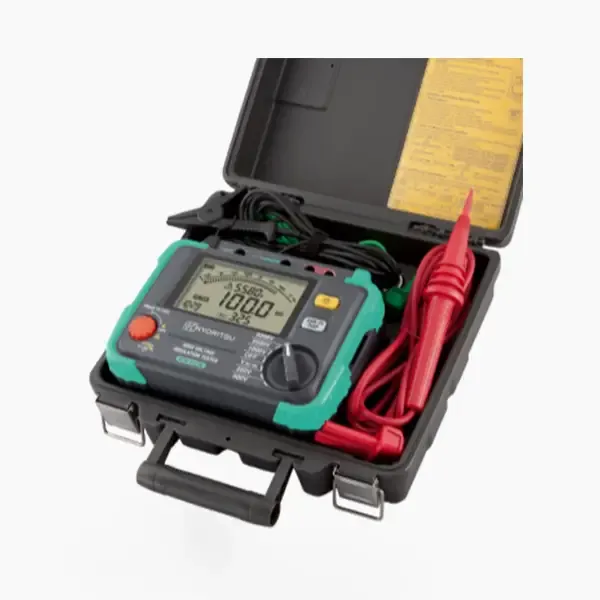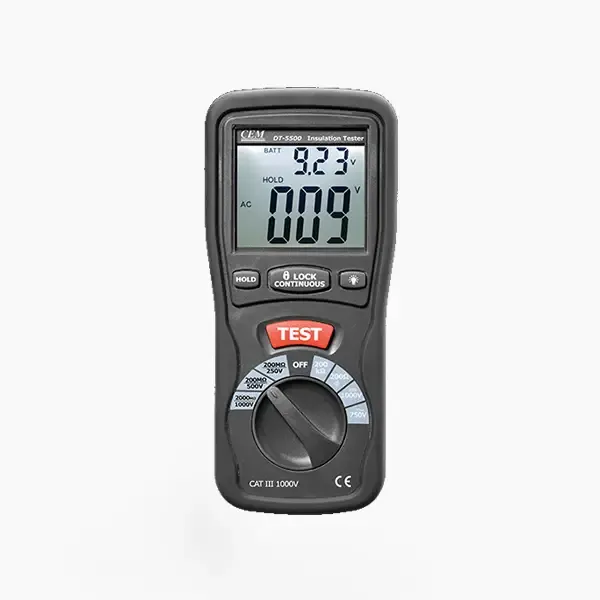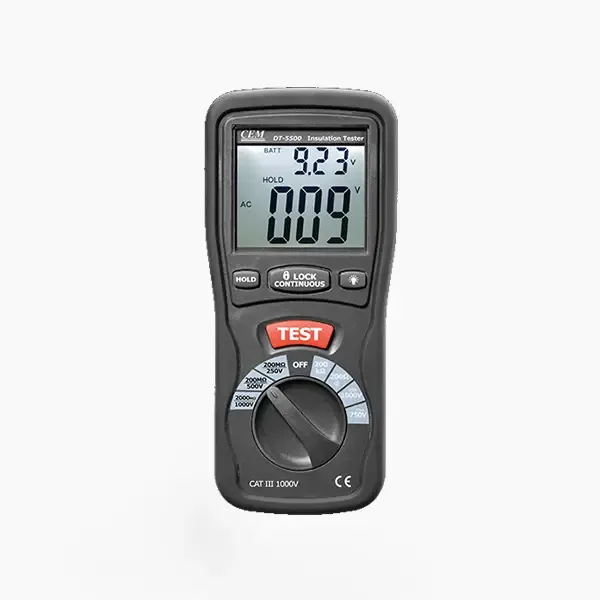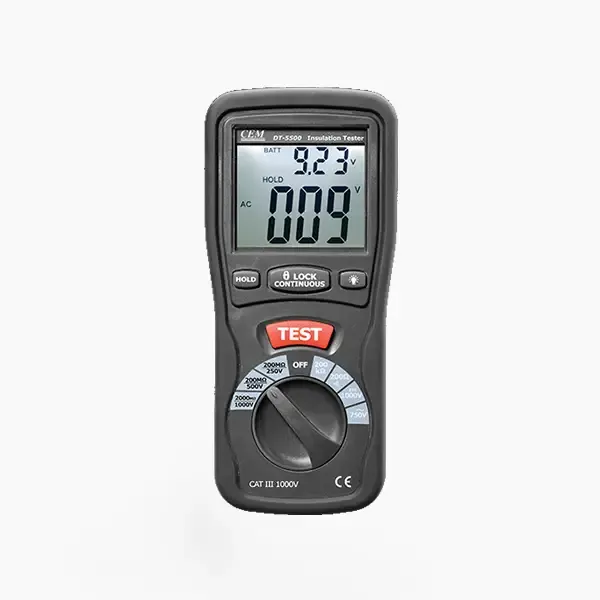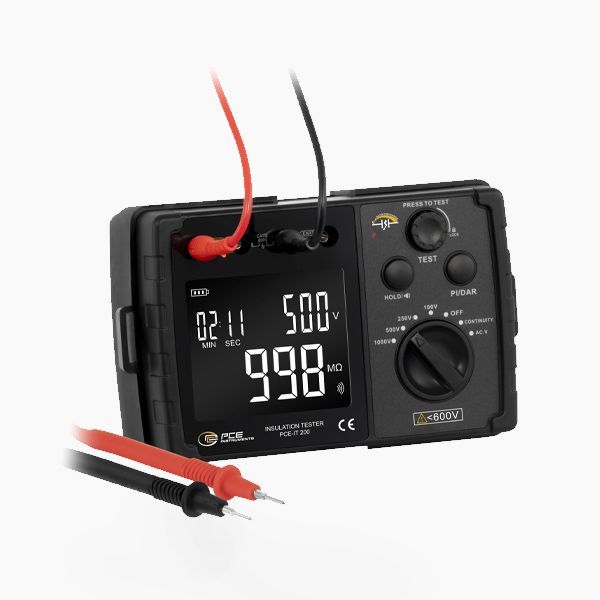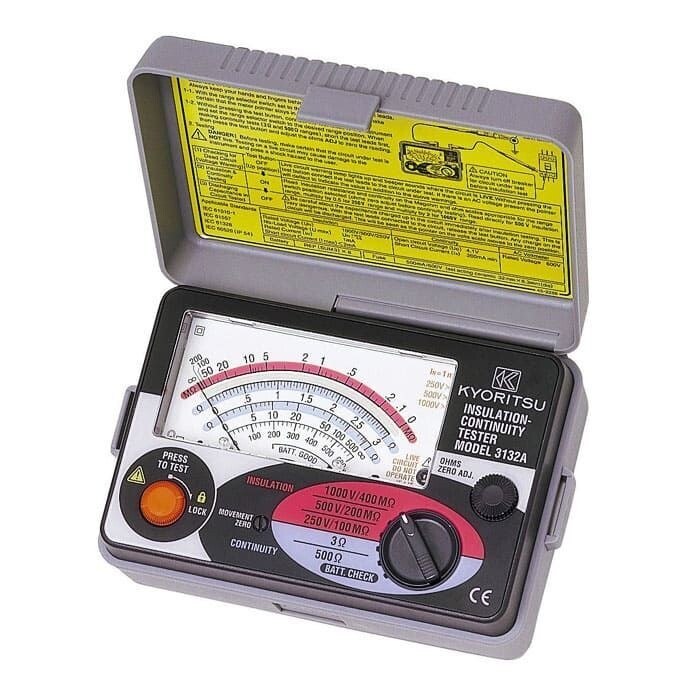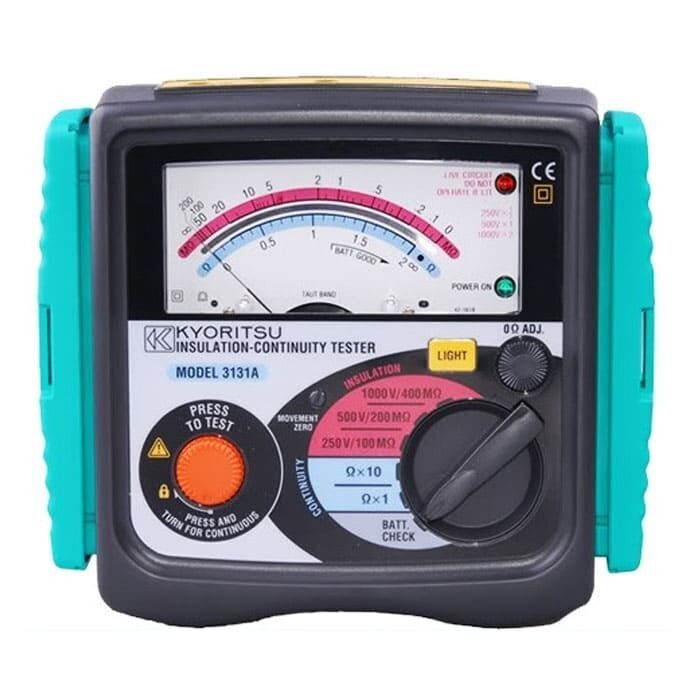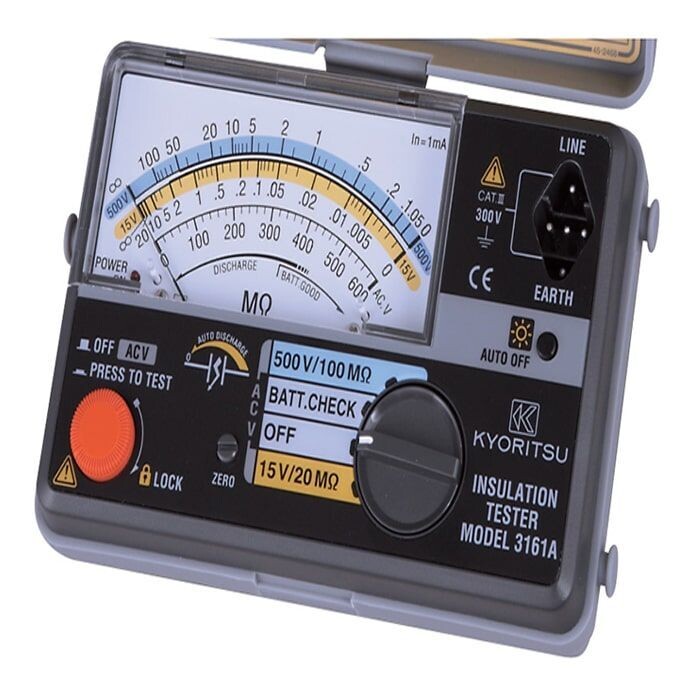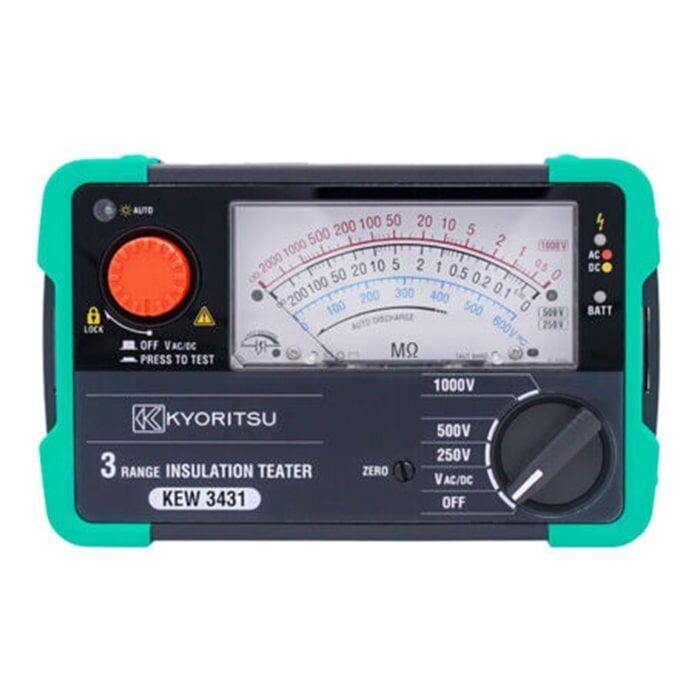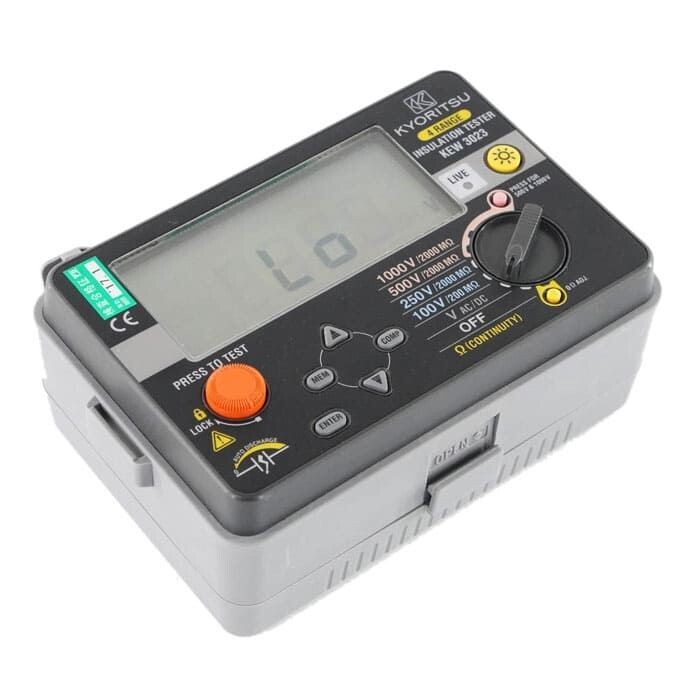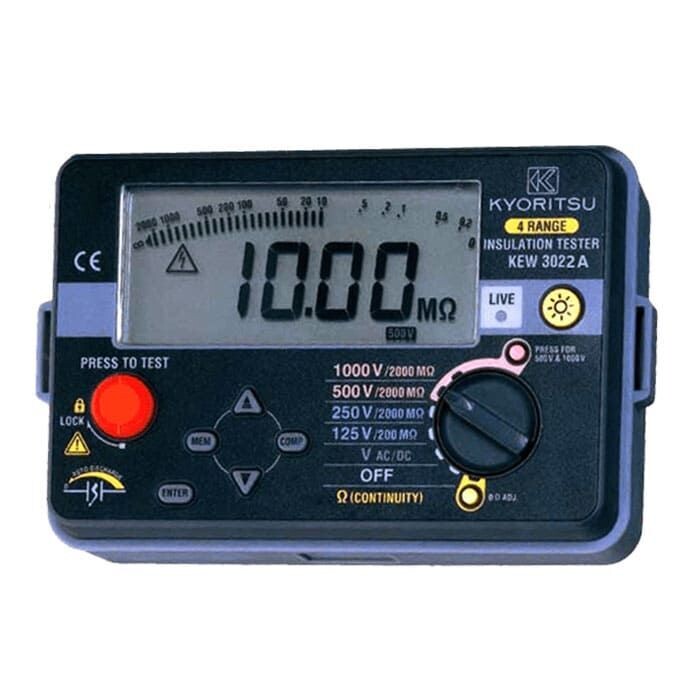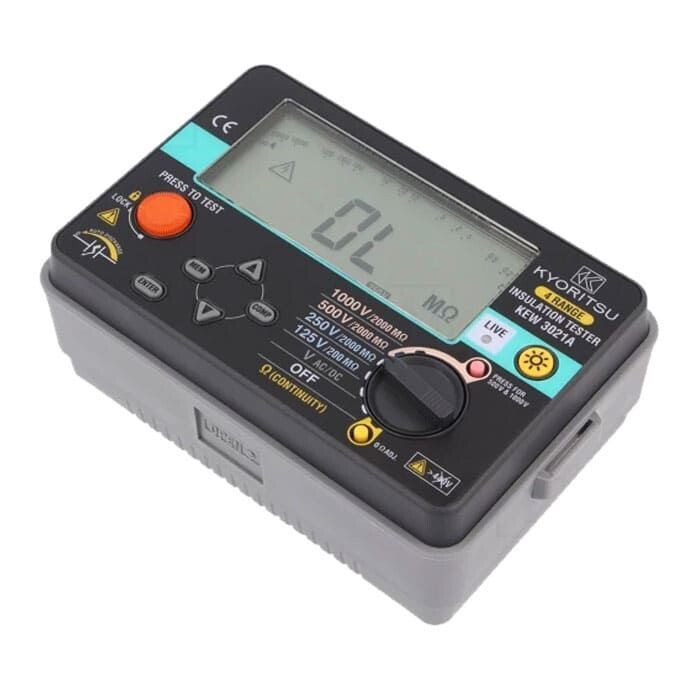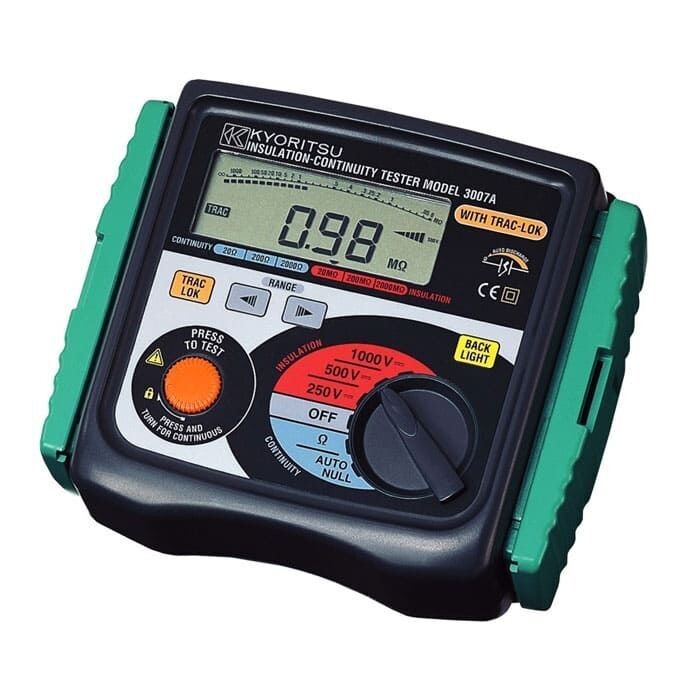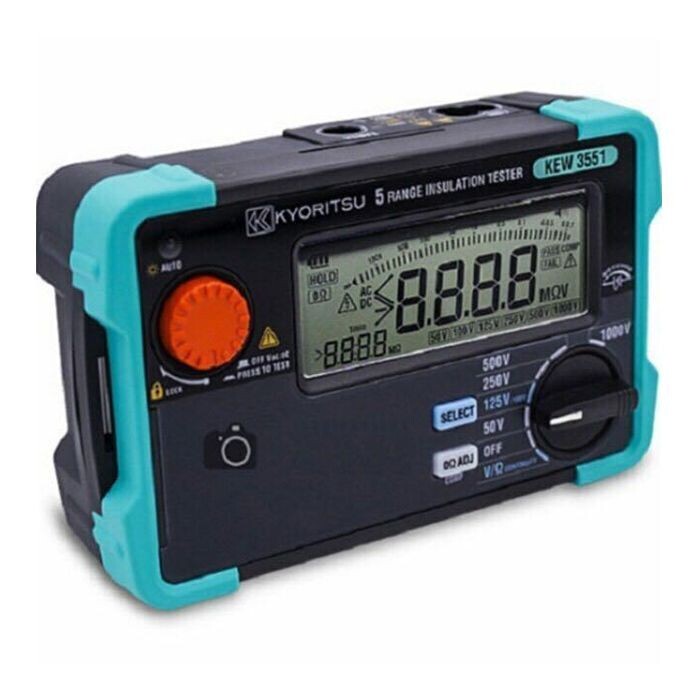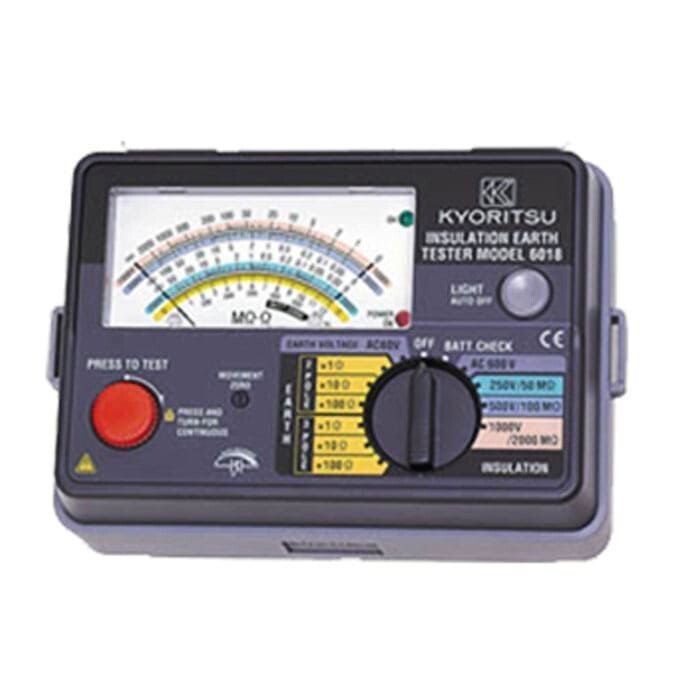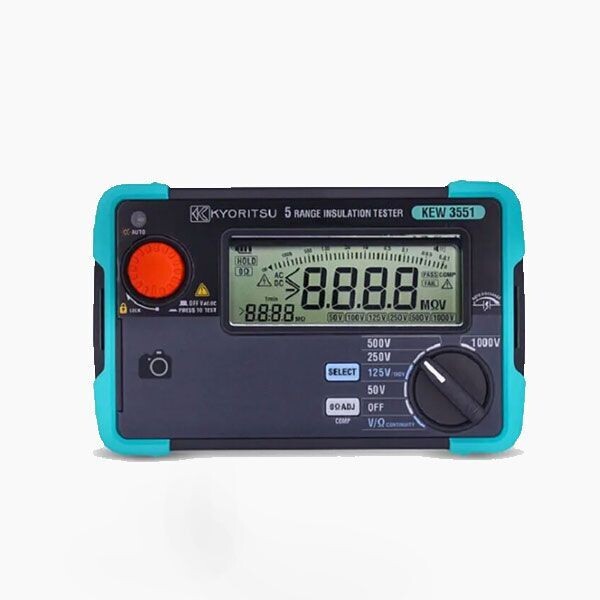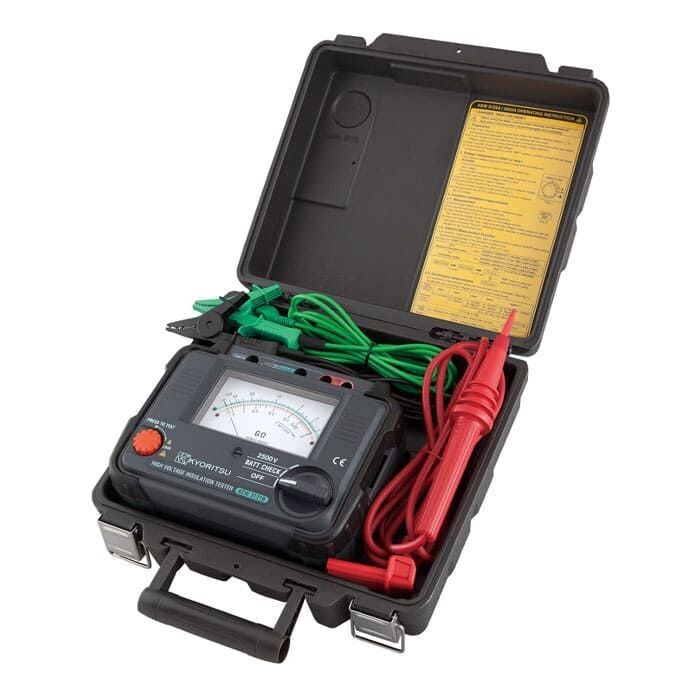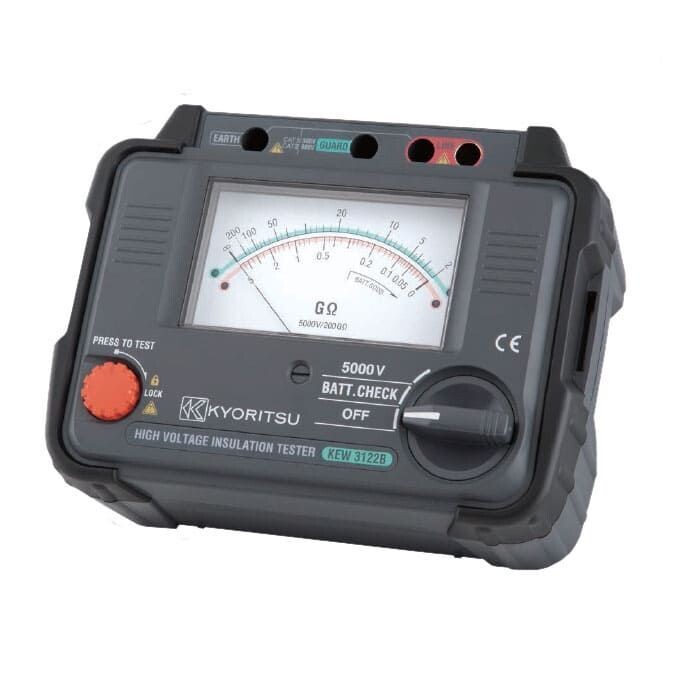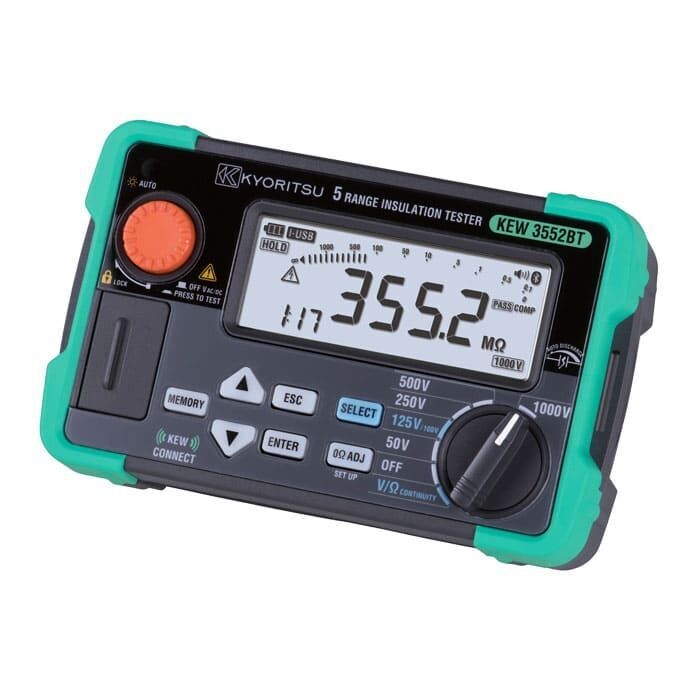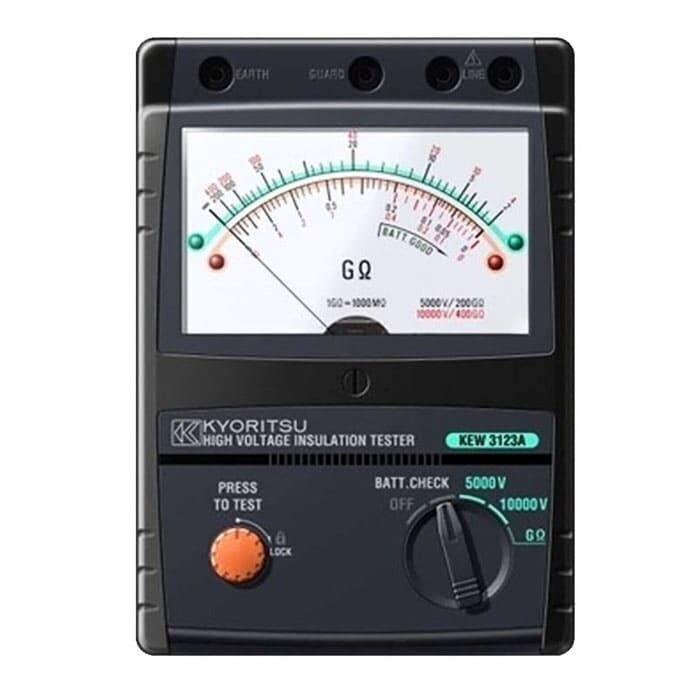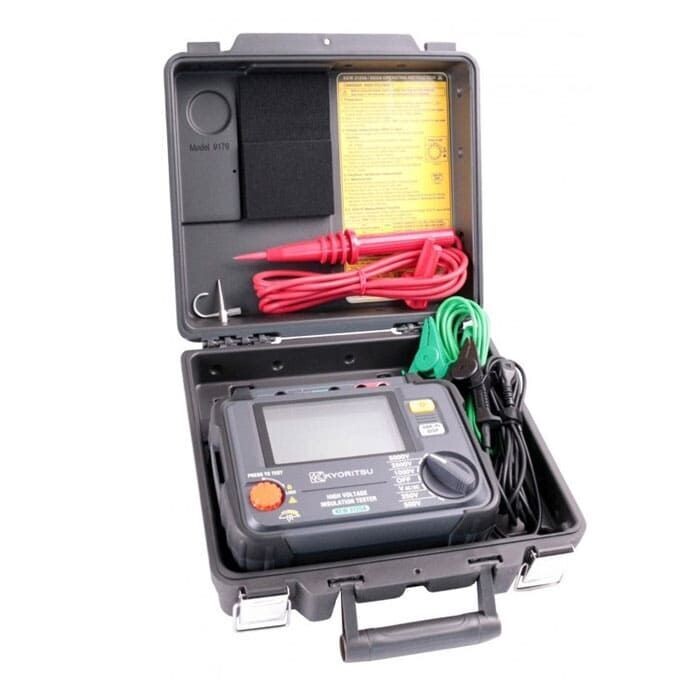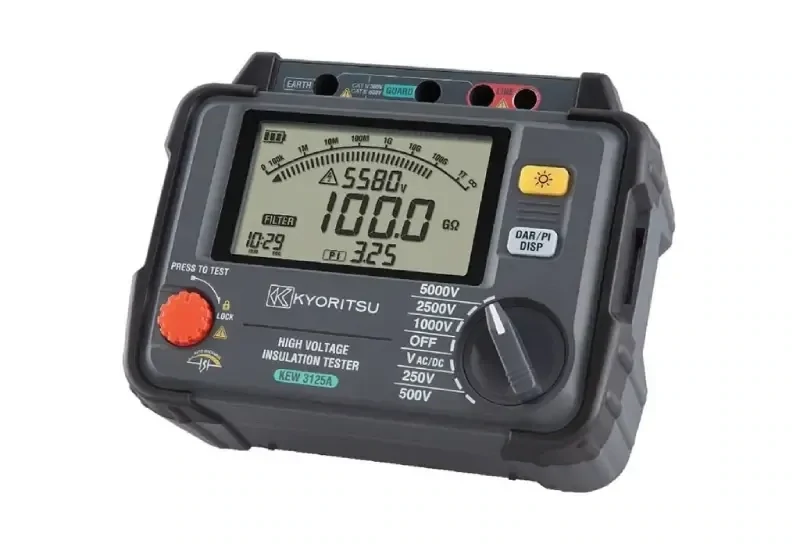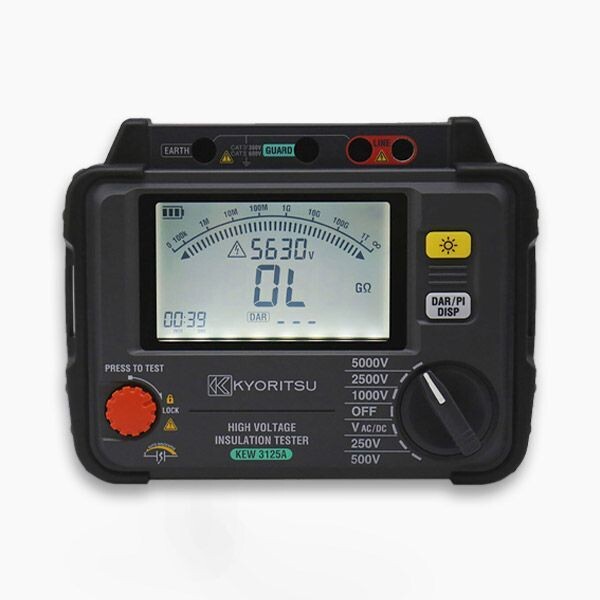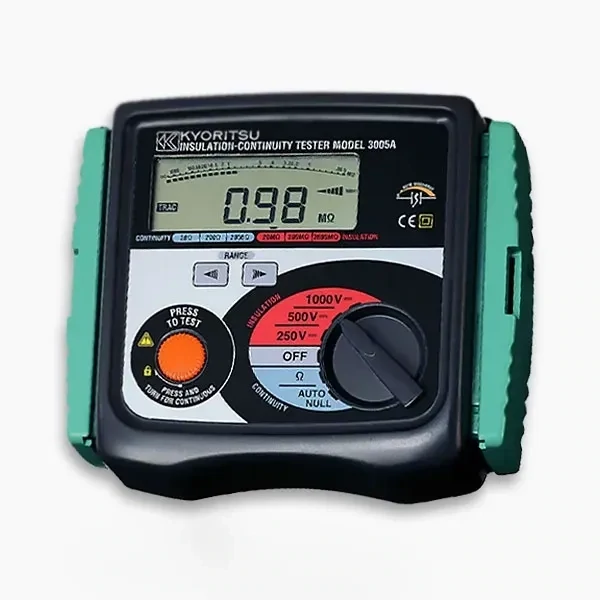Insulation Resistance Tester
Insulation Resistance Testers
Insulation resistance testing is a critical part of electrical maintenance, ensuring the integrity of electrical insulation and preventing electrical failures that could lead to accidents or equipment damage.
What Is an Insulation Resistance Tester?
An insulation resistance tester, also known as a megohmmeter or megger, is an instrument used to measure the resistance of electrical insulation in various systems and equipment. It evaluates the ability of insulation materials to withstand electrical stress without breakdown.
How Does It Work?
Insulation resistance testers work by applying a high-voltage DC (Direct Current) or AC (Alternating Current) voltage to the insulation being tested. They measure the resulting current that flows through the insulation. The resistance is calculated using Ohm's law, R = V/I, where R is resistance, V is voltage, and I is current.
Read More
Types of Insulation Resistance Testers
There are several types of insulation resistance testers available, each designed for specific needs and preferences. The most common types include:
Megohmmeters (Meggers)
Megohmmeters are traditional insulation resistance testers that often use a hand-cranked generator to generate a high-voltage DC test voltage. They are known for their durability and accuracy.
Digital Insulation Testers
Digital insulation testers use modern electronics to generate and measure test voltages. They offer convenient features such as digital displays and automatic calculations of resistance values.
Analog Insulation Testers
Analog insulation testers use analog displays, such as a moving pointer on a scale, to indicate resistance values. They are less common today but can still be found in some applications.
Advantages of Using Insulation Resistance Testers
Preventing Electrical Failures
Insulation resistance testing helps detect deteriorating insulation early, preventing electrical failures, downtime, and costly repairs.
Ensuring Electrical Safety
By identifying weak insulation, these testers contribute to electrical safety by reducing the risk of electrical shock, fires, and accidents.
Compliance with Regulations
Insulation resistance testing is often required by safety standards and regulations to ensure the integrity of electrical systems and equipment.
Applications of Insulation Resistance Testers
Insulation resistance testers find applications in various industries and scenarios, including:
Electrical Equipment Maintenance
Routine testing of electrical equipment, such as motors, transformers, and switchgear, helps identify insulation problems before they escalate.
Motor and Generator Testing
Insulation resistance testing is crucial for motors and generators to ensure reliable operation and prevent unexpected breakdowns.
Cable and Wire Insulation Assessment
Testing cable and wire insulation is essential for identifying damaged or deteriorated insulation that could lead to electrical faults.
Quality Control in Manufacturing
Insulation resistance testing is often part of quality control processes in manufacturing to verify the integrity of electrical components.
Megger Insulation Tester:
The Megger insulation tester stands out as a reliable and widely used instrument in the field. Renowned for its accuracy and durability, the Megger insulation tester is specifically designed for assessing the insulation resistance of electrical systems, helping to identify potential faults before they escalate.
Fluke 1507 Insulation Tester:
Fluke, another industry leader, offers the Fluke 1507
insulation tester, known for its precision and user-friendly interface. This digital insulation tester provides accurate readings and features that simplify insulation resistance testing processes.
Conclusion
In conclusion, insulation resistance testers are indispensable tools in electrical maintenance and safety. Their ability to assess insulation integrity helps prevent electrical failures, protect personnel, and ensure the reliability of electrical systems. As technology advances, insulation resistance testers will continue to play a crucial role in maintaining electrical safety and compliance with industry standards.




